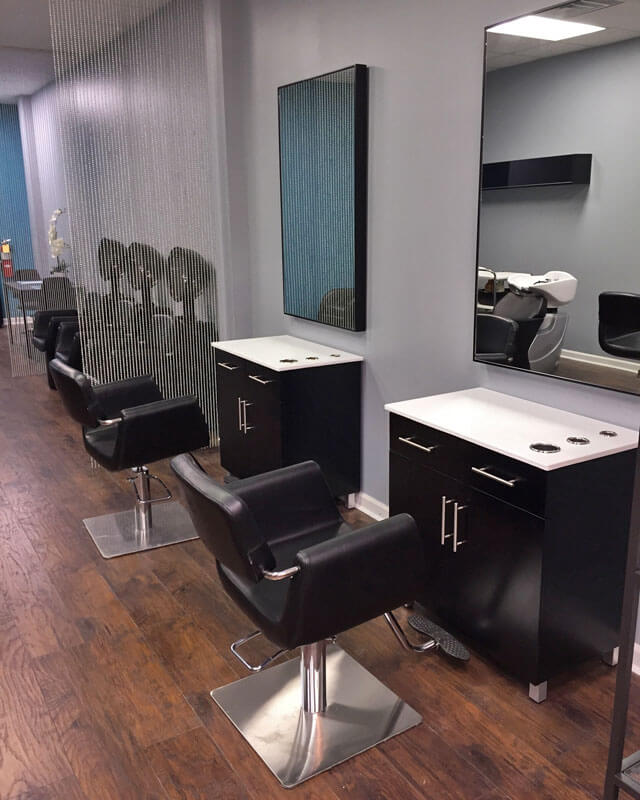Strategic Choices: Considering the Advantage of Renting Out Versus Having a Salon Room to Optimize Long-Term Success and Financial Feasibility
When it comes to establishing a beauty parlor business, one of the critical decisions that owners have to very carefully consider is whether to rent or own the area in which they run. The option in between renting out and owning a beauty parlor area can have a considerable impact on the long-term success and monetary health and wellness of the company.

Advantages And Disadvantages of Renting Out
When taking into consideration the decision between renting a hair salon area or possessing one, it is vital to weigh the pros and disadvantages of leasing to make an educated option. One primary benefit of leasing a salon area is the adaptability it offers.

Financial Aspects to Think About

Considering the financial implications of renting out a beauty parlor space versus having one is crucial for making a well-informed service choice. When assessing the economic aspects, it is essential to evaluate the initial expenses linked with each option. Leasing a beauty parlor space normally calls for a down payment and month-to-month lease payments, whereas possessing includes a down payment, home mortgage repayments, building taxes, and upkeep costs.
Additionally, the lasting monetary ramifications vary in between leasing and possessing. Leasing provides versatility yet may lead to greater cumulative expenses with time as a result of rental boosts. On the other hand, having a salon space offers prospective equity development and the opportunity to construct properties. It is necessary to carry out a cost-benefit evaluation to establish which option aligns best with your monetary goals and business strategy.
Leasing may supply reduced in advance expenses, allowing you to allocate more sources to advertising and company growth. Assessing these monetary aspects thoroughly will help you make a critical choice that enhances your beauty salon's long-lasting success and economic stability.
Operational Flexibility and Control
Optimum operational performance plays an essential role in figuring out the balance in between adaptability and control when determining in between leasing and owning a salon room. Renting a hair salon room uses inherent flexibility as it permits simpler adjustments to changing market conditions, customer preferences, or service demands. This flexibility is specifically advantageous for brand-new hair salon proprietors or those aiming to check various areas before devoting long-term. Furthermore, renting out provides the benefit of not being restrained to a specific residential or commercial property, making it possible for simpler moving if required.
On the various other hand, having a beauty salon area provides a better sense of control over the residential property and its operations. Owners have the freedom to customize the space to their liking, carry out long-term approaches without the danger of lease terminations, and possibly construct equity over time. Nonetheless, possession additionally features duties such as residential or commercial property maintenance, insurance coverage, and residential or commercial property tax obligations, which can influence the overall economic commitment.
Ultimately, the decision in between leasing and owning must consider the preferred level of functional flexibility and control that straightens with the hair salon's lasting objectives and vision.
Financial Investment Possible in Possession
Given the operational considerations discussed previously, discovering the click for more investment capacity in hair salon possession loses light on the monetary ramifications and lasting advantages that feature possessing a beauty parlor area. Salon ownership presents an one-of-a-kind opportunity for business owners to build equity and assets gradually. By investing in a beauty parlor area, owners have the prospective to take advantage of property gratitude, which can act as an important asset in the future. In addition, having a beauty parlor supplies security in regards to fixed home loan payments, offering predictability in monetary preparation contrasted to varying rental prices.
Moreover, ownership enables for greater control over the area, enabling owners to personalize and tailor the beauty parlor to their specific brand and vision without the constraints frequently enforced by proprietors. This degree of control can enhance the overall customer experience and brand name identity, possibly leading to enhanced client retention and organization growth.
In terms of investment capacity, having a hair salon room can additionally open up chances for extra revenue streams, such as renting out extra area to various other charm specialists or integrating retail sales within the salon. Nail salon. These varied income resources can contribute to the total economic health and sustainability of the company
Long-Term Security and Development
With an emphasis on sustainability and growth gradually, establishing long-term security and fostering development are critical elements of beauty salon possession. To make sure long-term security, beauty parlor proprietors should thoroughly think about elements such as place, market patterns, and economic planning. Choosing between renting out and having a salon area plays a considerable function in establishing the service's growth capacity.
Renting out a salon area gives flexibility and reduced initial costs, allowing proprietors to allocate sources in the direction of enhancing solutions and marketing efforts. By having the area, hair salon proprietors have more control over personalizing the building to fit their brand and can benefit from this link lasting property development.
Eventually, the decision between renting and having a beauty salon space need to straighten with the proprietor's long-term organization goals and financial goals. More about the author Whether prioritizing flexibility or equity building, a strategic strategy to residential property possession can significantly impact the salon's stability and growth trajectory.
Conclusion
In final thought, the choice between leasing and having a hair salon space requires a careful analysis of financial variables, functional adaptability, investment potential, and long-term security. Both alternatives include their very own collection of benefits and downsides, and it is essential for hair salon owners to consider these aspects to maximize long-lasting success and financial feasibility. Hair salon suites. Ultimately, the selection in between renting and having should be based upon a complete analysis of private business objectives and conditions